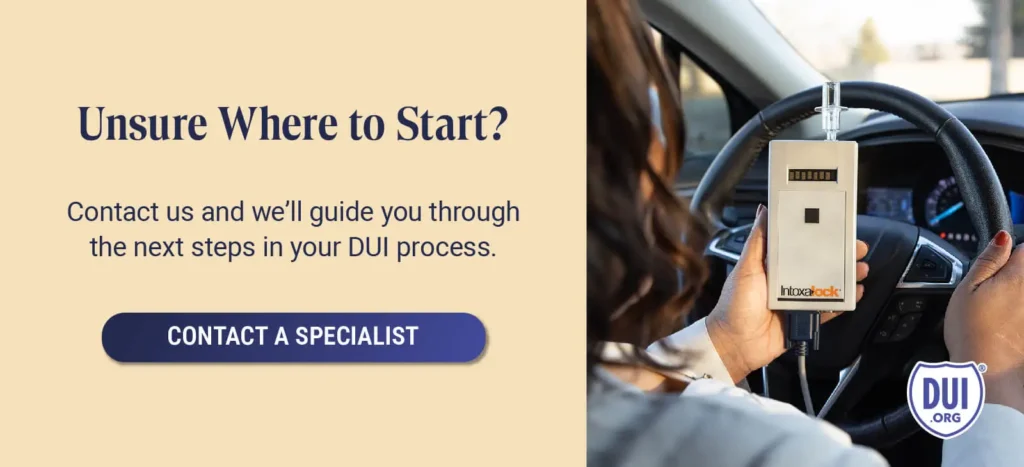
One drunk driving conviction can trigger significant and lengthy consequences that touch every corner of your life.
Key Takeaways:
- A DUI conviction can impact your career, finances, and personal relationships for years, even decades.
- Some states are extending DUI look-back periods to 20 years, meaning a second offense is harder to avoid.
- Knowing what to expect helps you prepare, recover, and reduce the long-term effects of a DUI conviction.
A DUI conviction can disrupt your driving privileges, career, housing options, insurance rates, and even your ability to travel. For many, the penalties extend well beyond the courtroom.
Even a first-time DUI can lead to years of financial strain, employment setbacks, and personal hardship. The overall impact of a DUI on life can be wide-ranging, affecting everything from relationships and housing to future educational or travel opportunities. Without a recovery plan, the long-term impact can be overwhelming.
This blog is for informational purposes only. For specific legal guidance, please consult a qualified DUI attorney. If you have an immediate question, please call our DUI.org state specialists at (877) 246-7808.
Post-DUI Employment Challenges
Some employers have strict rules that automatically disqualify or terminate employees who are convicted of DUI, regardless of the circumstances or job requirements. Other employers terminate workers who are no longer able to meet transportation requirements because of their DUI conviction.
Employment background checks often flag DUI convictions, especially for roles involving driving, security clearances, or finance. Even after fulfilling the legal obligations, the impact of a DUI on your life may disqualify you from job opportunities in government, education, or commercial driving.
Worried about your job after a DUI? Learn what employers can legally do here: DUI and employment.
Housing and Rental Difficulties
For many, difficulty securing housing is one of the most overlooked long-term effects of a DUI. Rental applications commonly include background checks, and a DUI can work against you, especially if it appears as a felony.
Some landlords view a DUI as a sign of risk or instability and favor applicants with clean records. This stigma disproportionately affects people already facing economic hardship, adding another hurdle for those trying to rebuild stability and secure housing after a DUI conviction.
Insurance Rates and SR-22 Requirements
The connection between a DUI and insurance rates is often one of the most financially punishing aspects of a conviction, leading many to seek out new insurance providers or policies.
Skyrocketing premiums and limited coverage options are among the steepest long-term effects of a DUI. A DUI conviction significantly increases your auto insurance rates. Most people are required to file an SR-22 form, which confirms you have your state’s minimum liability coverage following a violation. Insurers see a DUI conviction as high-risk behavior, and your premiums can double (or more) for years.
According to the National Highway Traffic Safety Administration (NHTSA), the financial impact of a DUI can be substantial. Costs include not only legal fees but also long-term increases in your insurance rates, some of the most burdensome expenses that follow a drunk driving offense.
DUI.org can help you understand your insurance options after a DUI. Call (877) 246-7808 to talk to a specialist. Or, learn more about how a DUI affects your insurance rates.
DUI and Travel Restrictions
If international travel is part of your job or personal life, a DUI can derail your plans. Some countries restrict entry to travelers with DUI convictions.
Canada is one of the strictest, refusing entry even for misdemeanor DUIs unless you pursue a costly legal waiver. To learn more, read our blog, Can you go to Canada with a DUI?
Some employers in logistics, consulting, or aviation may require you to be eligible to travel internationally. This raises serious concerns about DUI and travel restrictions. You may need to read through your company's employment policy handbook and/or consult with a DUI attorney if you have concerns about the long-term effects of a DUI.
Professional Licensing and Certification Issues
Many state boards for nurses, teachers, lawyers, and real estate agents require licensees to disclose their criminal history. A DUI conviction (even a single one) can result in denial, suspension, or mandatory monitoring.
These complications can delay or derail a career, especially in regulated fields. For example, a medical license that took years to earn may be put at risk by a single DUI conviction.

Impact of DUI on Family Life
Family dynamics often change after a conviction. You may feel guilty, ashamed, or as though you have let your family down. These feelings are common and a sign that you are taking responsibility. Rebuilding trust takes time, but it starts with transparency and follow-through.
Rebuilding Relationships
Trust with your family, friends, or even co-workers may erode. These changes may happen immediately, and there is a chance that hurt feelings will evolve over time, too. They will need time to navigate and process their feelings about your DUI, too.
While you will certainly have to find temporary transportation alternatives and your partner will face more family driving duties, the strain of a DUI on your relationships goes beyond logistics.
Parenting Through a DUI
Co-parenting arrangements can also become complicated if the criminal court system imposes alcohol monitoring or limits travel. In cases of divorced families, a DUI may become a family law matter. Always consult a qualified attorney with experience handling these delicate cases.
If your partner is looking for a resource to help you through your DUI, share this article with them.
Mental Health Considerations
A DUI conviction can trigger anxiety, shame, or depression, especially when facing job loss or financial strain. For some, it is a wake-up call. For others, it deepens feelings of isolation or failure. Regardless of how your feelings evolve, don't let the psychological long-term effects of a DUI go unspoken.
Fortunately, treatment is available. Many states require DUI classes or counseling, which can be an opportunity for growth. But it is important to recognize that DUI and mental health are deeply connected.
How to Preserve Your Mental Health After a DUI
Here are some tips to help you process your feelings connected to your DUI consequences:
- Acknowledge your feelings
- Avoid negative self talk
- Stay connected to loved ones
- Practice self-care
- Seek professional guidance
If you need an ignition interlock device (IID) after your DUI, our team at DUI.org can help. Please don't hesitate to reach out to us for solutions and support. Call anytime at (877) 246-7808.
Mandatory Alcohol Monitoring and Interlock Installations
Another long-term effect of a DUI is getting an ignition interlock device installed in your vehicle(s). These car breathalyzers require you to pass a breath test before operating a motor vehicle. They promote accountability, but do carry additional costs, maintenance, and operating requirements. Ignition interlocks are a proven tool to help curb DUI recidivism and keep roads safe.
IIDs are now required in many states after a DUI, especially for high BAC or repeat offenses. Minnesota recently passed SF 2068/HB 2130, which doubles its look-back period from 10 to 20 years and increases its IID mandates.
A look-back period is the span of time during which a previous DUI conviction can be considered when courts determine the penalties for a new offense. A longer look-back period means a DUI from many years ago can still count against you if you get a new one. This longer look-back period may compound any challenges you and your family are still trying to work through from your first DUI should you repeat the offense.
You may need to talk to your children about your DUI and your ignition interlock device once you get it installed.
Want to understand more about ignition interlock device requirements? Our DUI.org team can help at (877) 246-7808.
Healing from a DUI
A DUI is not the end of your story. Yes, the long-term effects of a DUI are serious, but you can still rebuild.
Start by learning your state’s requirements. Then, be sure to complete all requirements including court mandates, DUI classes, and installing your IID. With time and follow-through, most people regain full driving privileges and repair the damage.
DUI.org is here to help with license restoration, SR-22 guidance, IID resources, and emotional support. Whether you want to understand the next step to regain your driving privileges, or discuss your IID questions, our specialists offer supportive, judgment-free assistance and practical advice.
Navigating Life After a DUI Conviction? We are Here to Help.
Understanding and planning for the long-term effects of a DUI can help you regain control of your future. DUI.org offers step-by-step guidance to help you navigate life after a DUI conviction. Call us today at (877) 246-7808 to speak to a state specialist in your area who can help you learn about ignition interlocks.
Get support.
What is next? We can help you through the process. Give us a little information and we can support you through the next steps.
All fields are required.